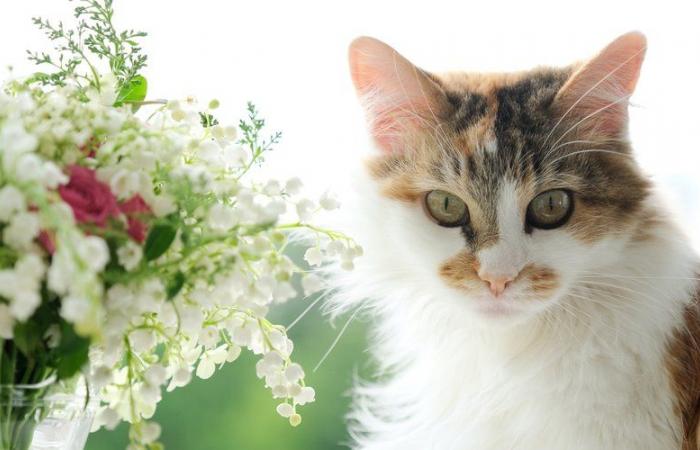These pretty white bells offered for May 1 represent a deadly danger for your pets. The emergency veterinarian Pierre Fabing gives his advice to Midi Libre To avoid drama.
Symbol of spring, lucky charm … Lily of the valley, which is traditionally offered on May 1, is extremely dangerous for your four-legged companions.
Behind his pretty fragrant flowers in the shape of white bells hides another unsuspected reality. The plant is “extremely toxic” For dogs and cats, alerts veterinary emergencies in a common. This plant that only flowers for three weeks a year, represents “Almost 20 % of plant intoxications over the year”explains the veterinarian Pierre Fabing.
Why is this plant dangerous?
Lily of the valley which is also toxic to humans, contains cardiotoxic heterosides, “Molecules similar to digitalin, a poison used in particular in the Middle Ages to kill people”summarizes Pierre Fabing.
Ingestion, even in small quantities is enough to intoxicate your pet. Eat a small tin of thrush, chew a sheet and even “Drinking the water from the vase where this molecule will be found, will have consequences on the animal’s body”warns the veterinarian.
What symptoms should alert?
These consequences are reflected first in salivation, vomiting, diarrhea, nausea, prostration, acceleration and decreases of heart rate: “This can evolve towards cardiac stops, convulsions, and in the worst case, death”explains Pierre Fabing.Alarming symptoms but which do not necessarily appear immediately after the ingestion of lily of the valley: “There are certain cases where the symptoms appear after a quarter of an hour, but in others after 6 hours”according to Pierre Fabing. There can be a while between the moment when the animal eats lily of the valley and the appearance of symptoms, which sometimes makes the link between the two, notes the specialist.
What if we suspect poisoning?
If you think your animal has been intoxicated by lily of the valley, the first thing to do is call your veterinarian without thinking. If it is not available, “We call veterinary emergencies at 3115 which make it possible to put the owners in contact with a daycare service in their sector”advises Pierre Fabing.
According to the emergency veterinarian, “If there is any doubt about ingestion, it is better to consult in excess and take measures with your veterinarian than to try to wait or consider doing something by yourself.”
And make your animal vomit? Not necessarily a good idea. If techniques are explained on the internet, they do not work every time and can sometimes be dangerous for animals, warns the specialist.
How to avoid disaster?
So what to do? Stop buying lily of the valley? If you have a cat for example, the best is to leave the bouquet of bells out of its reach, in a room where it cannot access. Note that 95 % of cases of lily of the valley relate to cats, notes Pierre Fabing.
As soon as the strands are faded, throw them quickly as well as the water from the vase in which they were: “Sometimes with cats, the only way to put it completely out of reach is not to buy it”indicates the veterinarian.
As a reminder, intoxication to thrush is “very serious” and it does not exist “No antidote” To treat it: “Once the poisoning is there, we can just fight against the symptoms to prevent there to be big problems but you are never sure that the animal can get out of it”specifies Pierre Fabing.








